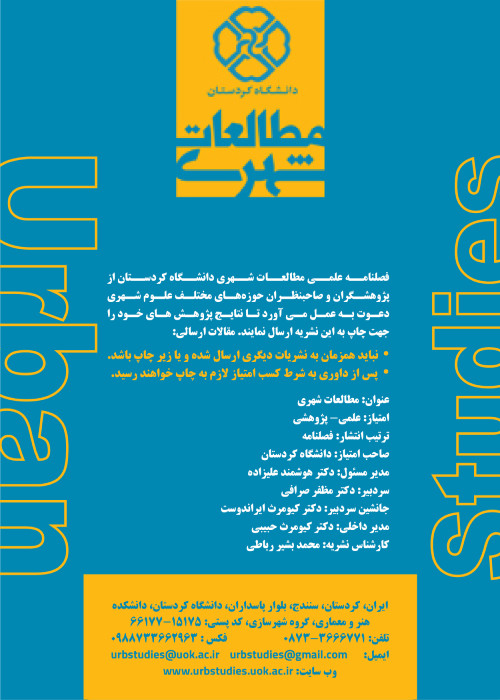Perception of Urban Landscape Aesthetics: Comparison between experts and users Case Study: Adl-e Khomeini Sq., Mashhad, Iran
Beauty is an issue that has always engaged urban designers, architects and authorities. However, in practice we face a notable difference between buildings and spaces which are constructed as beautiful and the aesthetic perception of them. Thus, various studies have been conducted on the aesthetic evaluation of urban landscape in recent decades. Different conclusions of these studies show that there is no consensus on aesthetic perception. Various or even conflicting interpretations have been proposed by these researches, and this has led to the different definitions of beauty. Several studies have been undertaken on the aesthetic evaluation of urban spaces, in which experts express their own standards of beauty. Regardless of minor differences between experts’ opinions, the same set of criteria has been taught to architecture and urban design students. In addition, some research have been undertaken to evaluate beauty of spaces from people’s perception and also to discover their criteria for such an evaluation. The important question here is which set of criteria to use in the design of public spaces. This paper attempts to discuss the difference between these two types of evaluations in order to obtain a more accurate understanding of what ordinary people perceive as beautiful. Thus, this paper attempts to answer the following questions: is there any difference between aesthetic evaluation by experts and ordinary people? Are their criteria for aesthetic evaluation the same? And finally, are physical criteria adequate for aesthetic evaluation? This paper is based on quantitative methods. Although there were some qualitative data involved in the selection of beautiful landscapes, the mentioned data was transformed into quantitative scores. Evaluations of this paper were based on post-construction evaluation method and the data was analyzed by comparative method. Based on evaluations and results, we can conclude that firstly, the most important point is the difference between user and expert evaluation results which could negate urban aesthetic design by expert without user` participation. In other words, what architecture and urban design students learn at universities as beautiful landscape is different from how ordinary people perceive as beautiful. This difference is more noticeable when the results of aesthetic evaluation of the same criteria are completely different between experts and ordinary people. Secondly, different results were obtained for aesthetic evaluations carried out by people at two different stages. This shows that expert criteria cannot be used by people for aesthetic evaluation because they have their own criteria in mind. Thirdly, the difference between the two performed evaluations is affected by the way these groups perceive urban landscape. While experts focus on academic criteria, ordinary people see the urban space as a whole and include their own memories in evaluation. They evaluate a landscape with all their senses and not just with their eyes. In conclusion, it is recommended that experts should change their viewpoints and focus more on whole environments and their atmosphere. Furthermore, academic teachings should change based on Gestalt theory and more attention should be paid to the environment as a whole for aesthetic evaluations. Finally, urban design projects should be carried out with people’s participation so that they are involved in the design of the aesthetic criteria. Through this, experts can learn from people's perceptions and their designs would better reflect people’s ideas of beauty.
- حق عضویت دریافتی صرف حمایت از نشریات عضو و نگهداری، تکمیل و توسعه مگیران میشود.
- پرداخت حق اشتراک و دانلود مقالات اجازه بازنشر آن در سایر رسانههای چاپی و دیجیتال را به کاربر نمیدهد.



